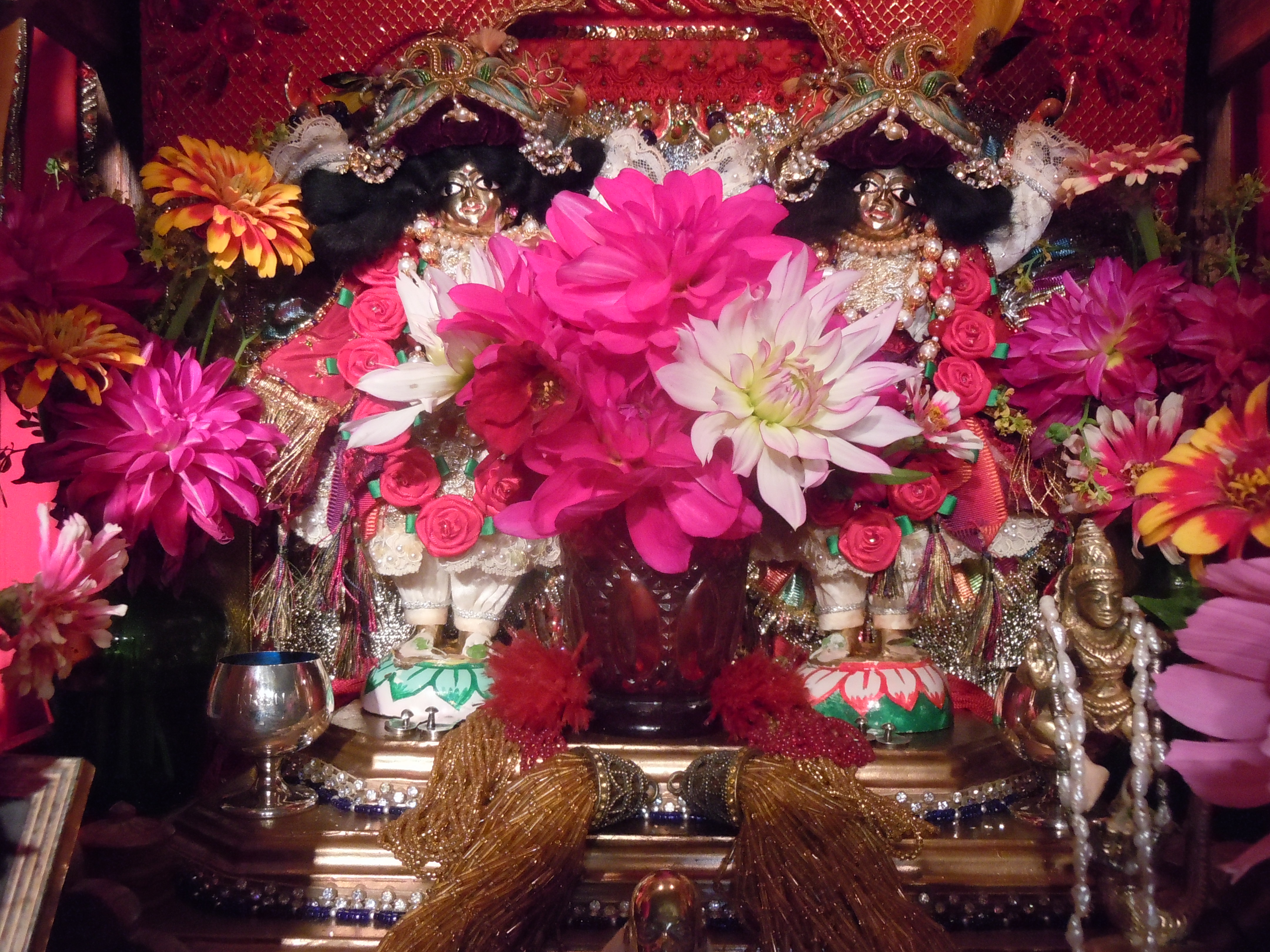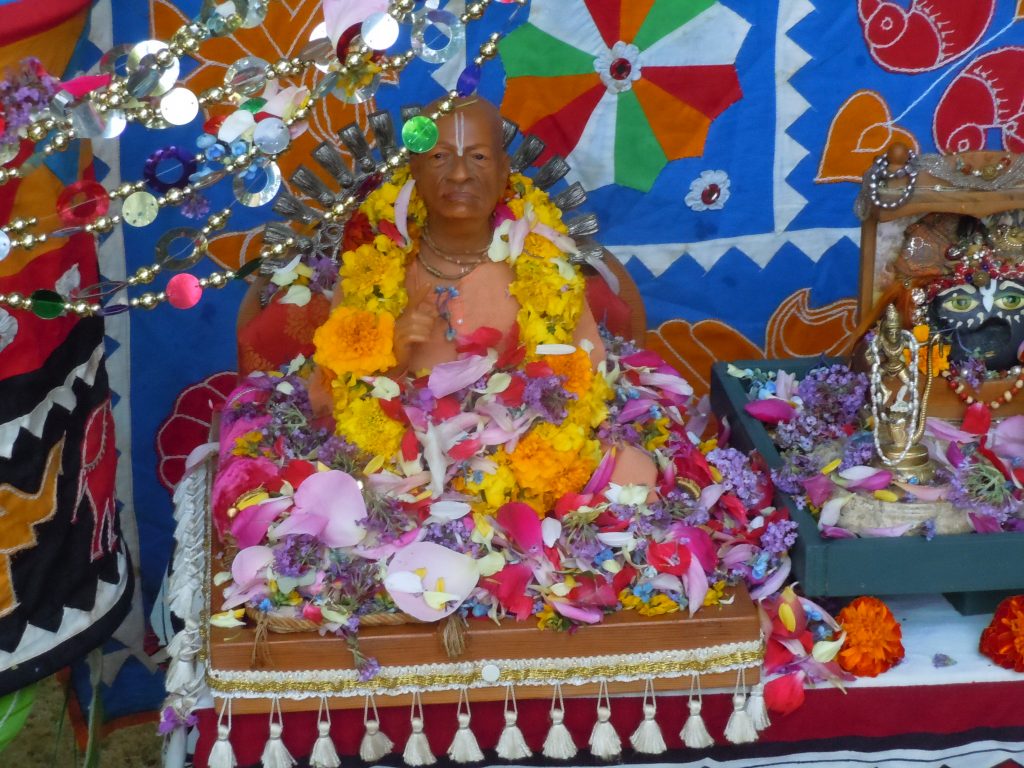 September 6, 2021In ecstasy, Śrī Caitanya Mahāprabhu rubbed His face against the walls all night long, making a peculiar sound, "goṅ-goṅ," which Svarūpa Dāmodara could hear through the door. Link to this page: https://prabhupadabooks.com/cc/antya/19/60 Lighting a lamp, Svarūpa Dāmodara and Govinda entered…
September 6, 2021In ecstasy, Śrī Caitanya Mahāprabhu rubbed His face against the walls all night long, making a peculiar sound, "goṅ-goṅ," which Svarūpa Dāmodara could hear through the door. Link to this page: https://prabhupadabooks.com/cc/antya/19/60 Lighting a lamp, Svarūpa Dāmodara and Govinda entered…- September 3, 2021Hare Krsna---I am very happy to present here some pictures of the "fruits of our labor", which will get offered…

Under the guidance, inspiration and authority of
His Divine Grace A.C. Bhaktivedanta Swami Prabhupada
Founder-Acharya of the Krishna Consciousness Movement
Srila Prabhupada: “I wish that each and every branch shall keep their separate identity and cooperate keeping the acharya in the center. On this principle we can open any number of branches all over the world. (Letter, February 11, 1967)








